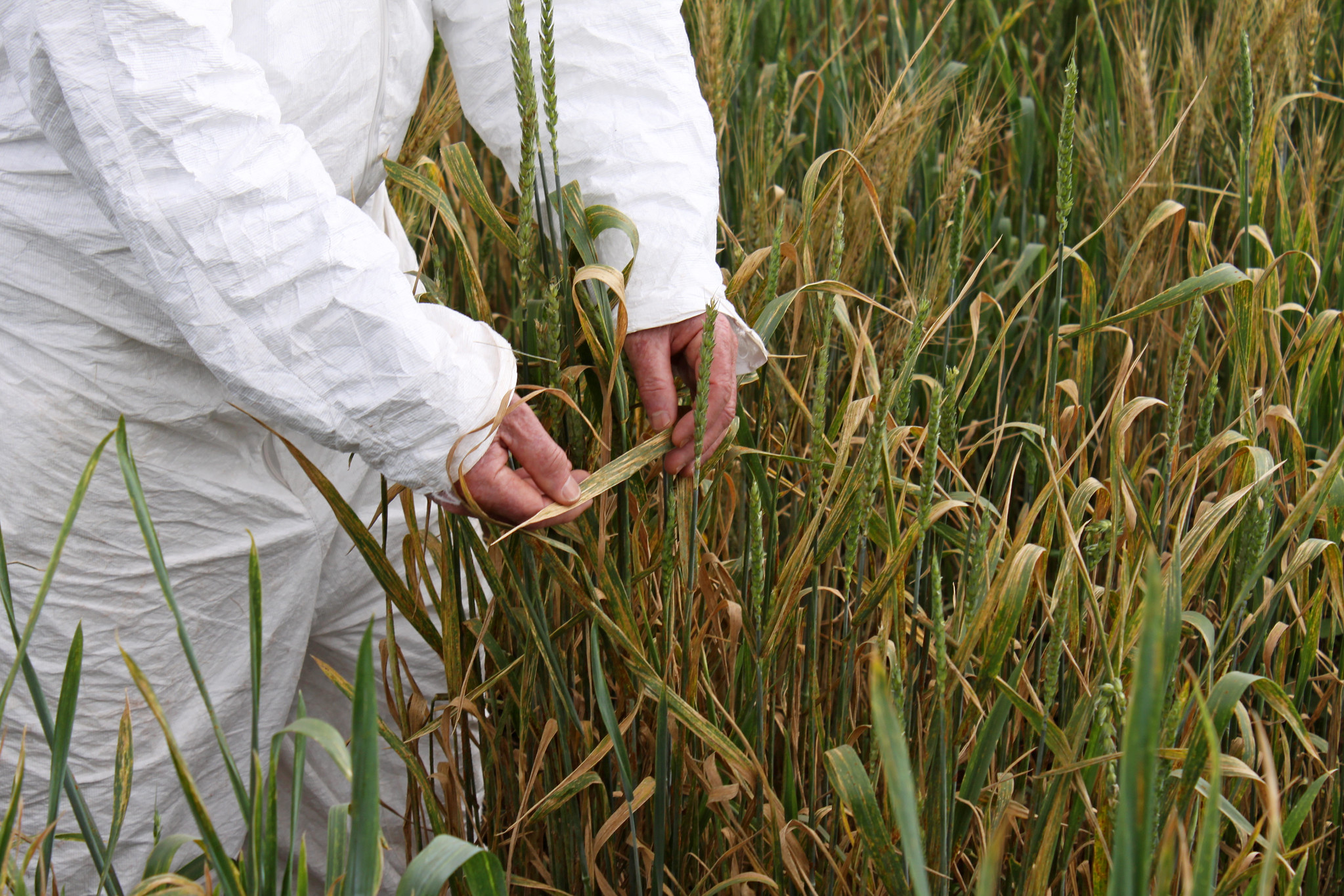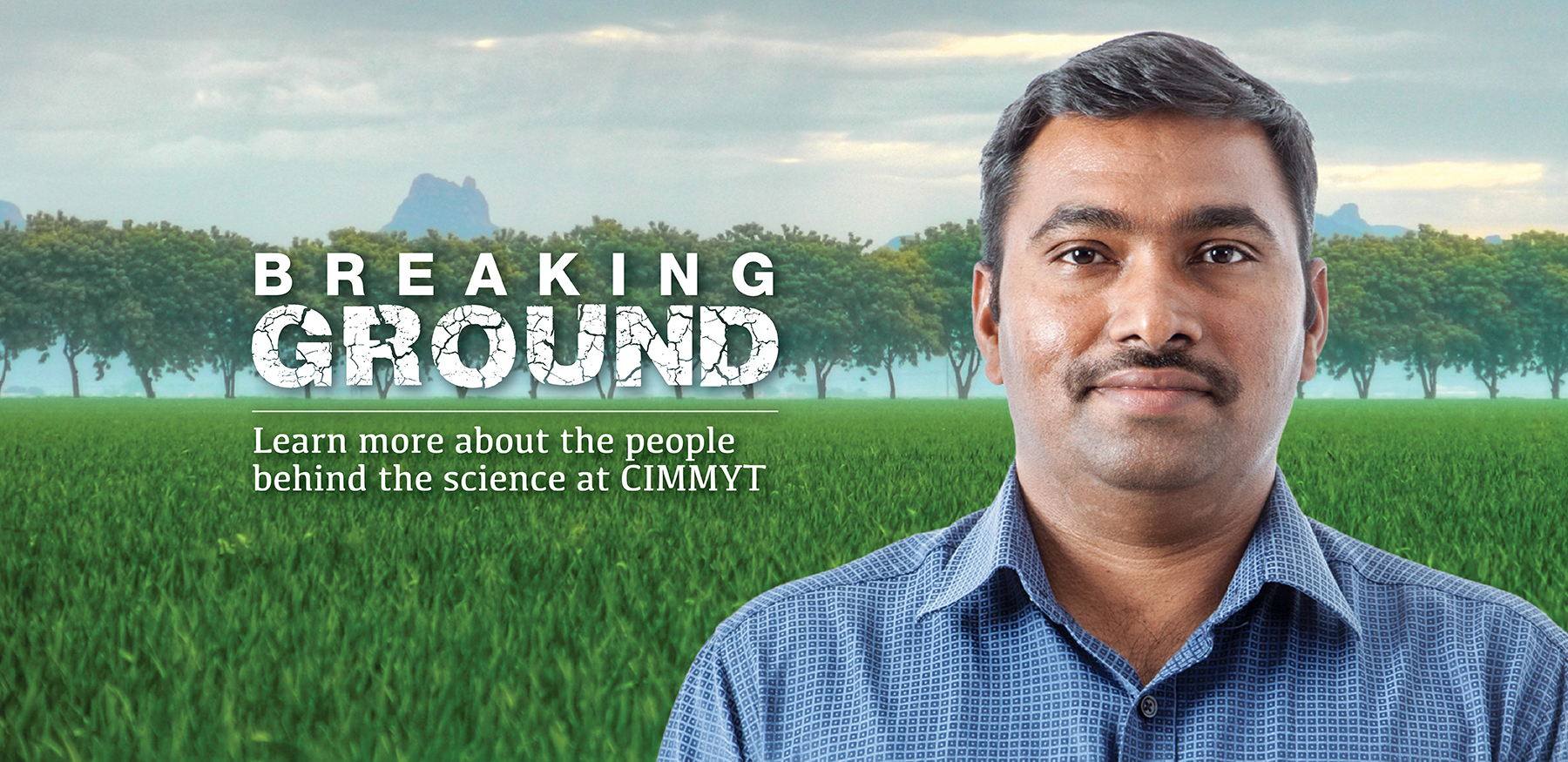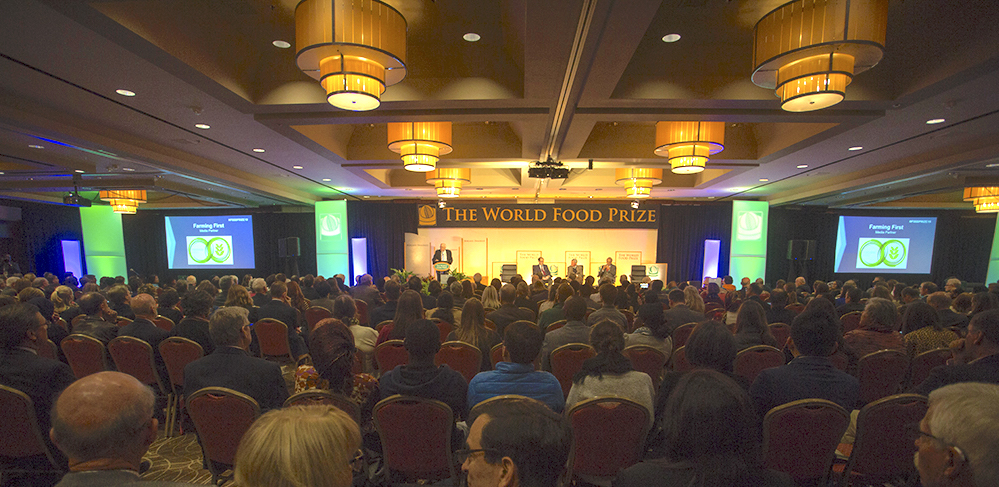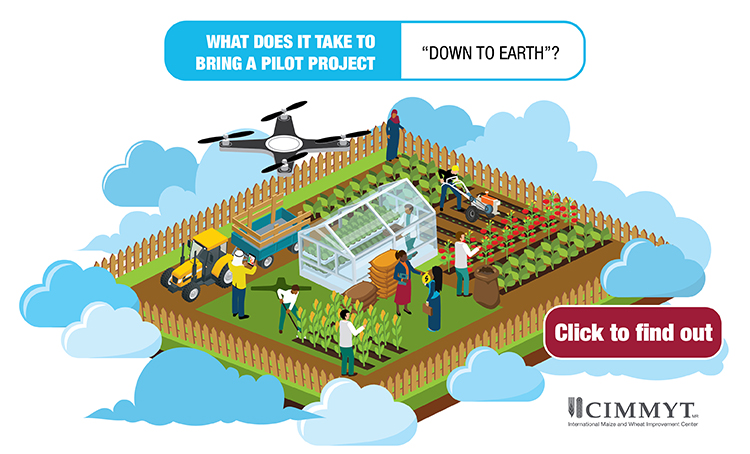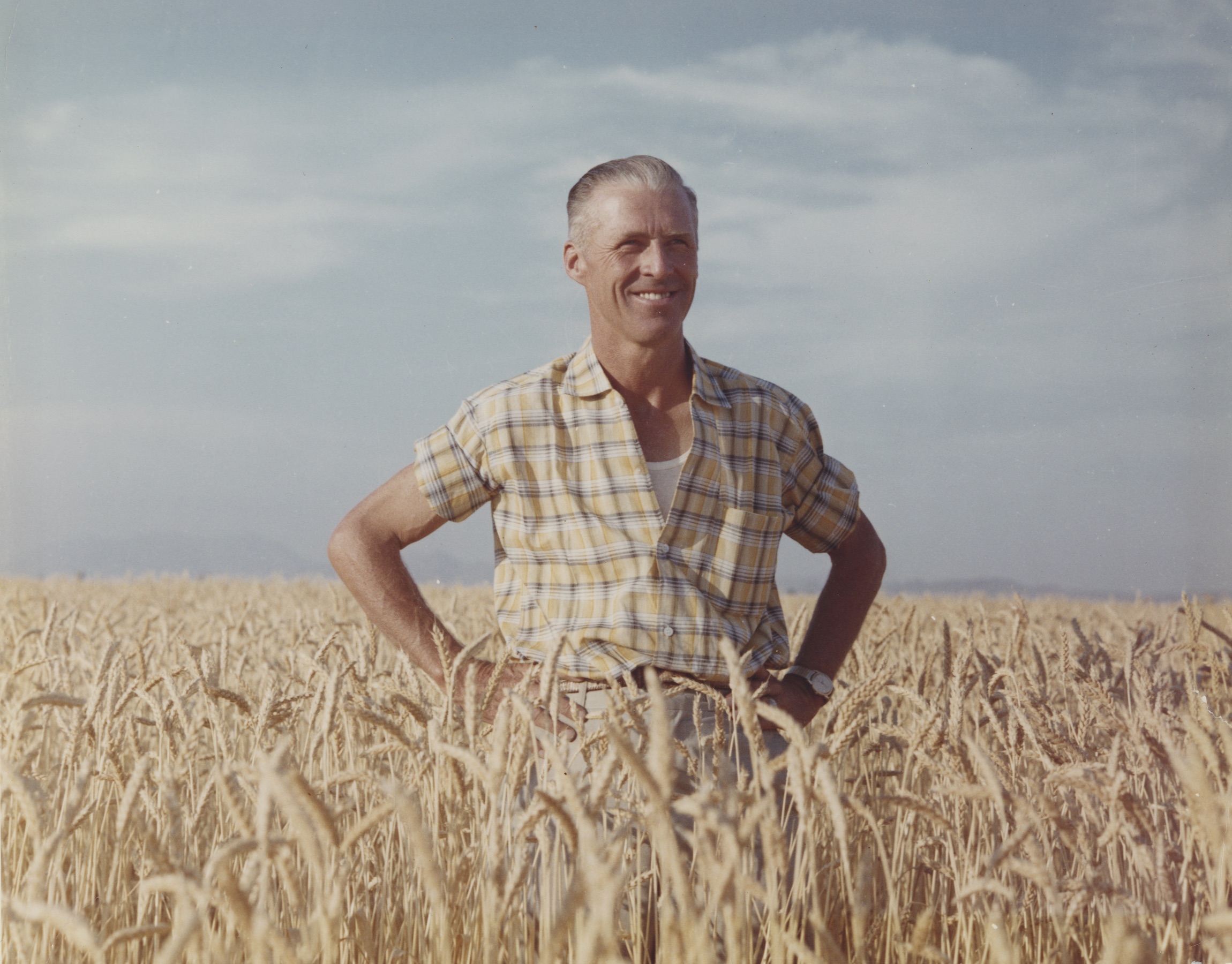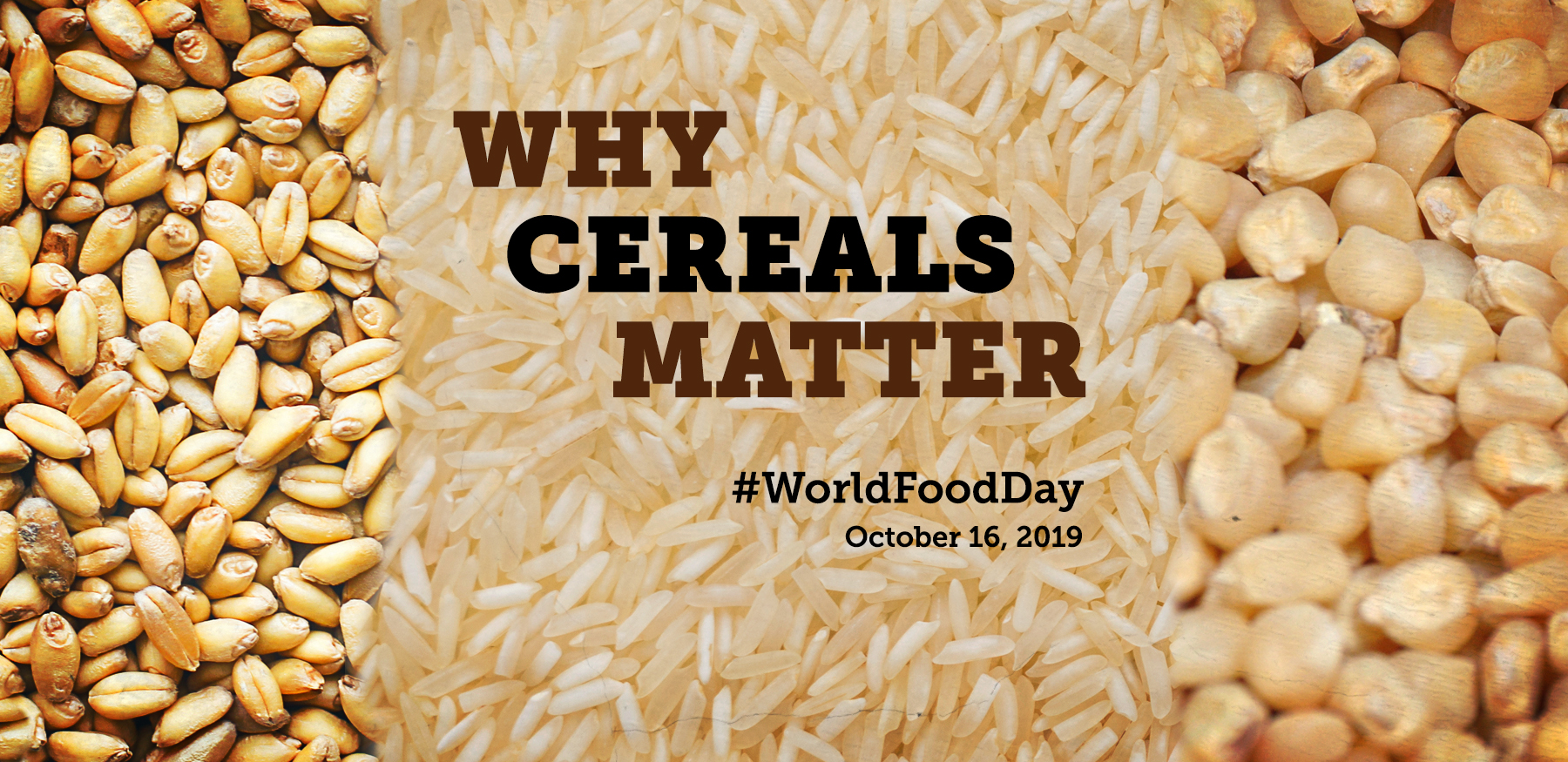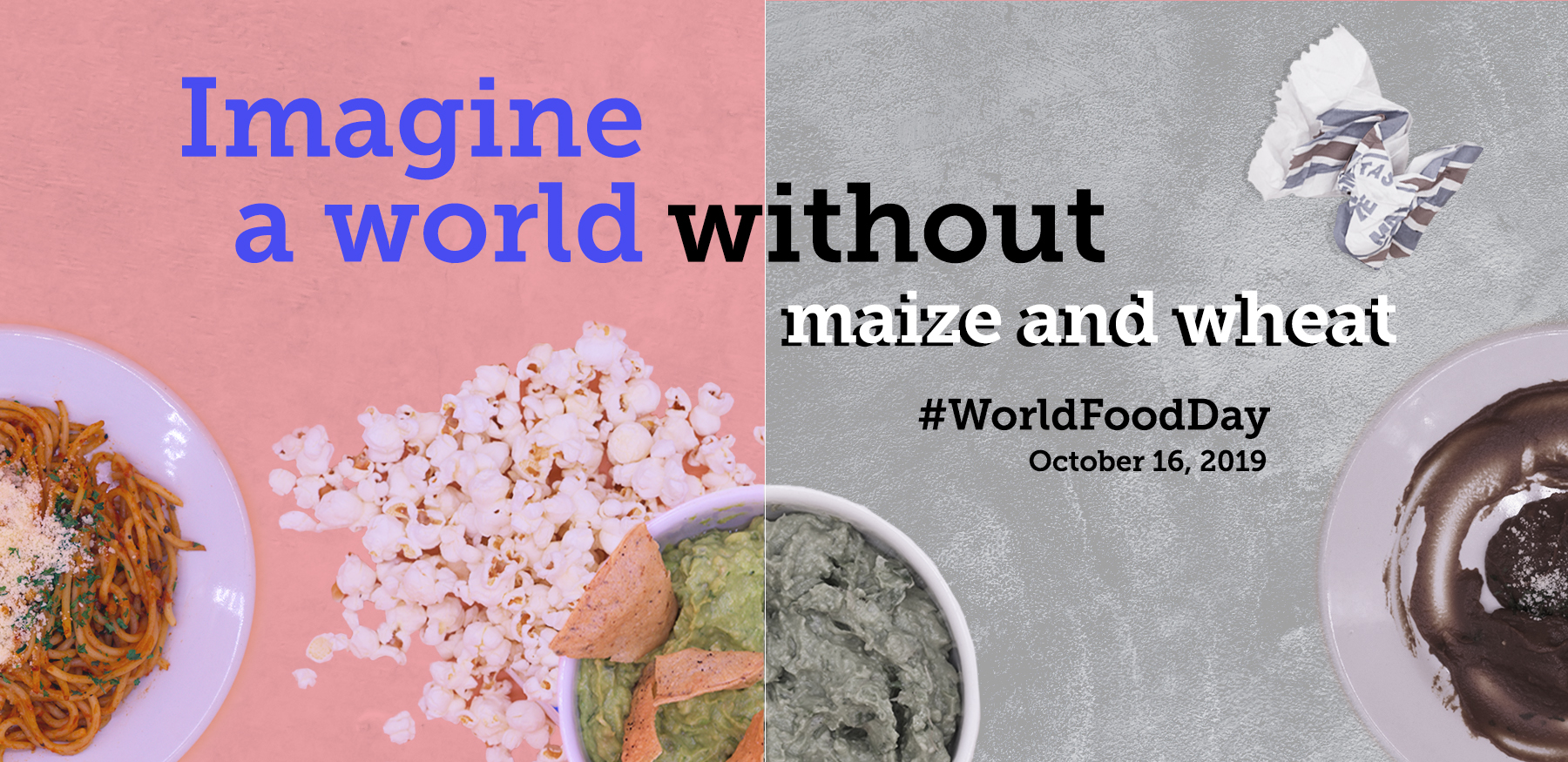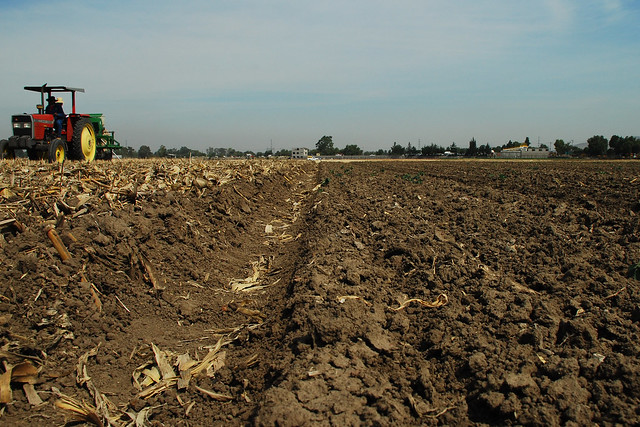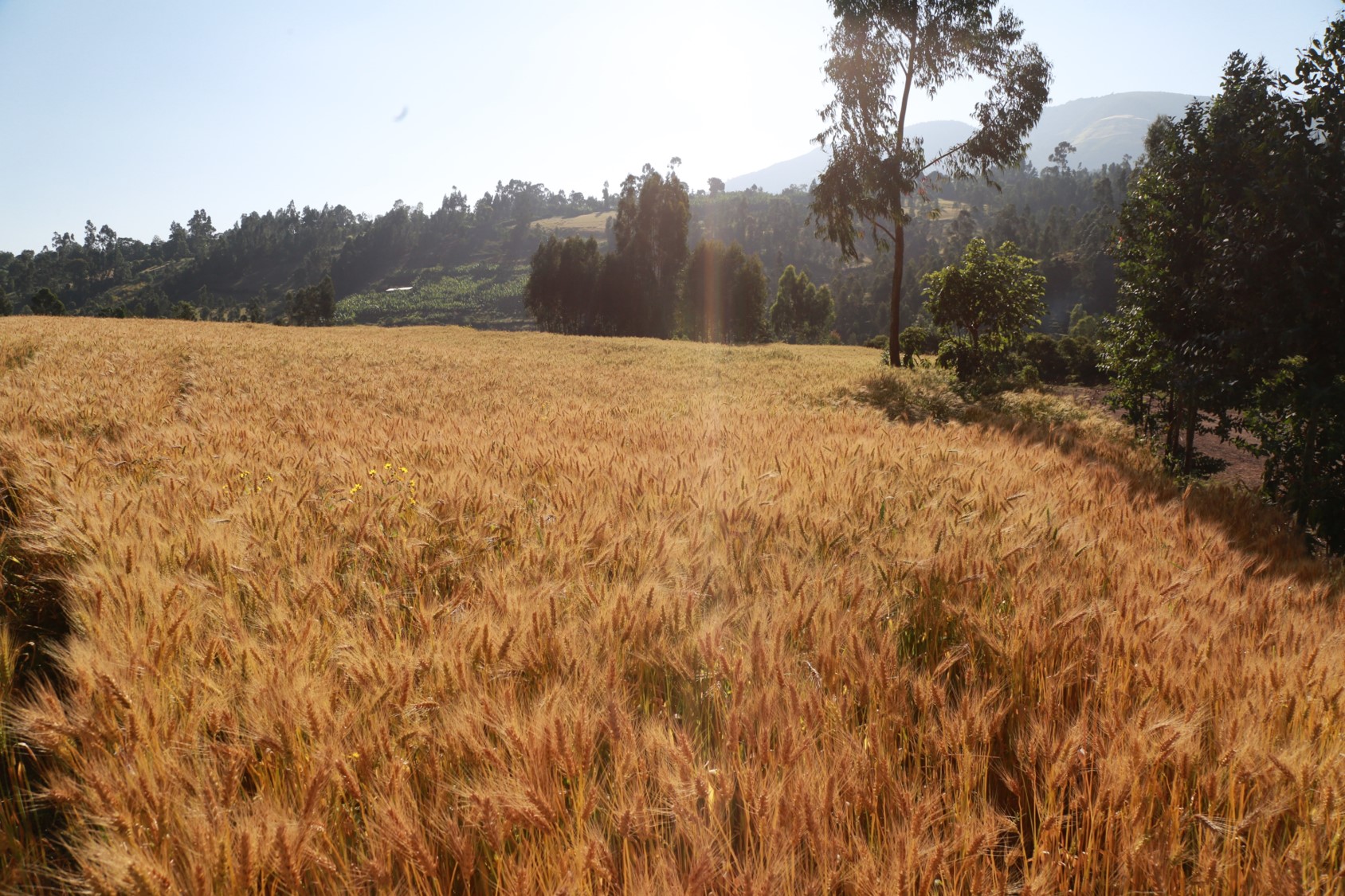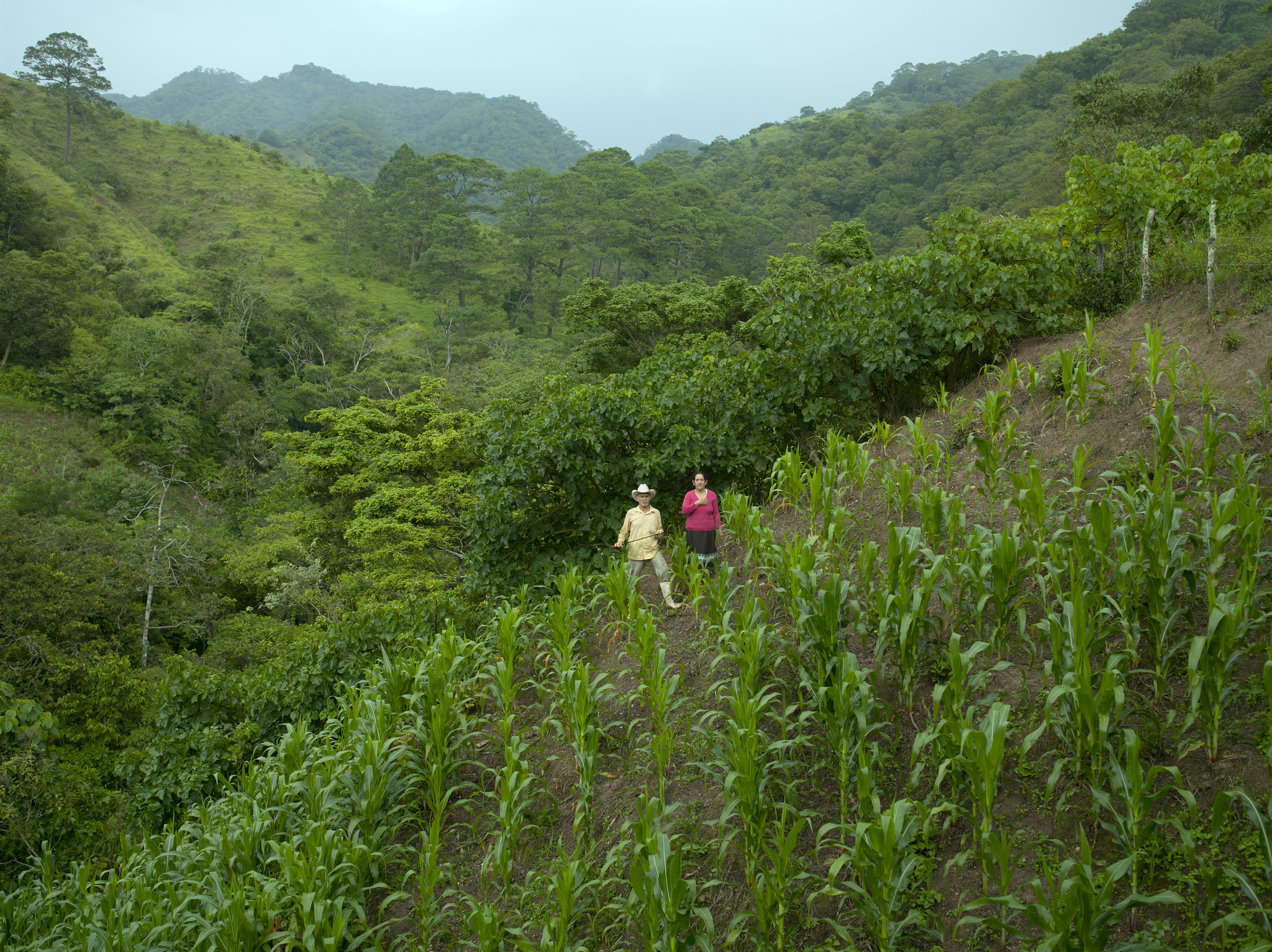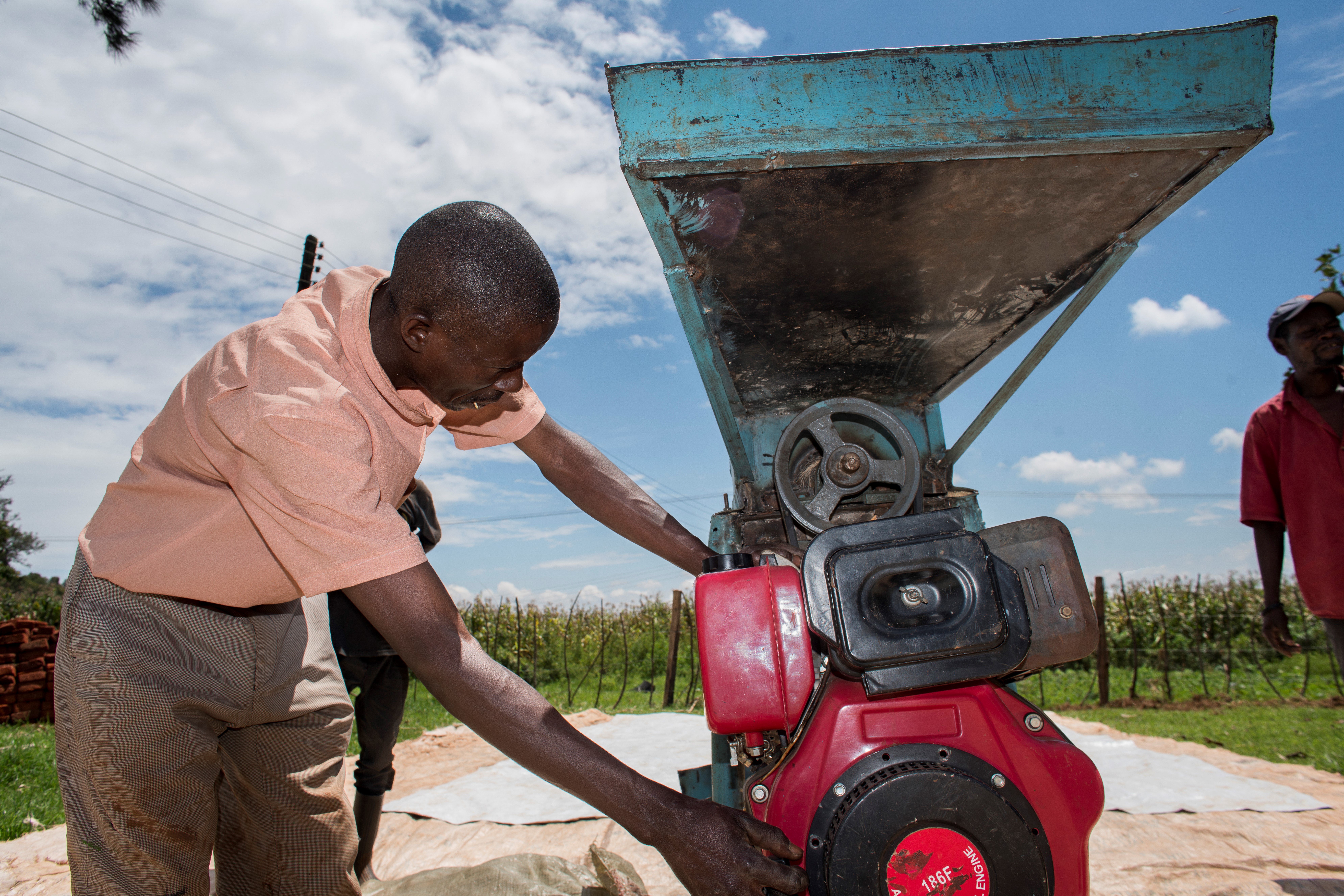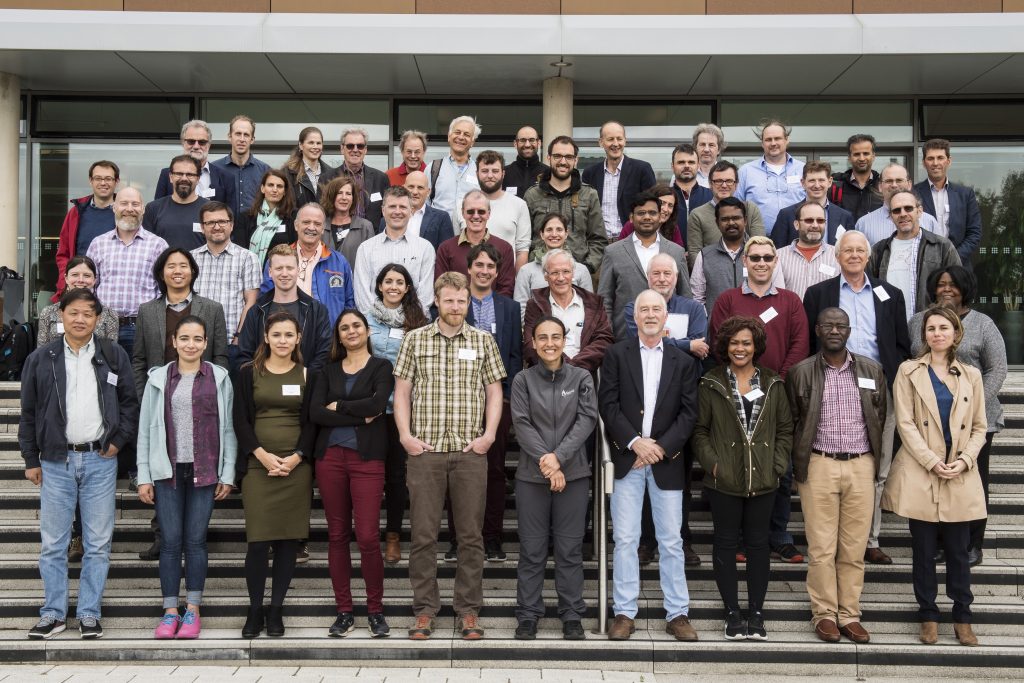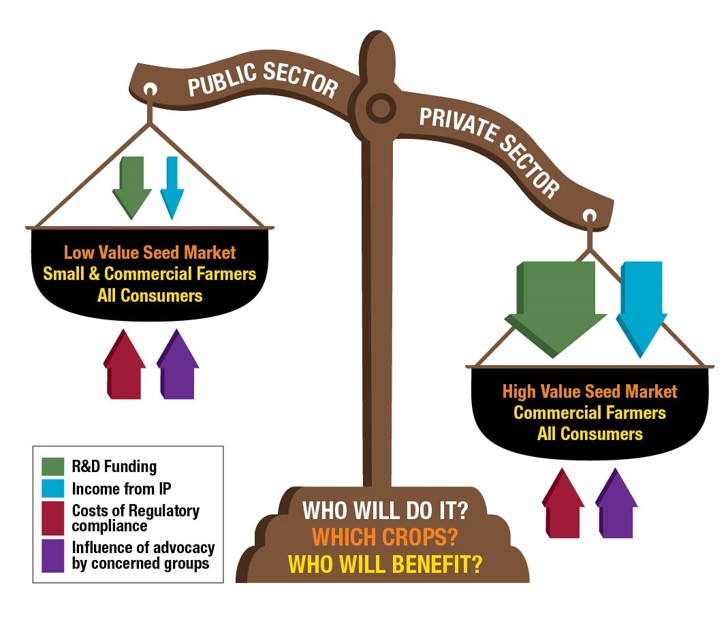Global
New publications: Special collection on wheat genetics and breeding
 Nutrition, health and food security
Nutrition, health and food security
Researchers present highlights from 40 years of collaboration on wheat genomics, breeding for disease resistance and quality improvement.
Breaking Ground: Velu Govindan is mainstreaming zinc to combat hidden hunger
 Innovations
Innovations
CIMMYT wheat breeder supports smallholder farmers without access to a diversified diet by improving nutritional quality in wheat.
Climate, nutrition and security challenges require global food system transformation
 Climate adaptation and mitigation
Climate adaptation and mitigation
The 2019 Borlaug Dialogue explored solutions to feed the planet sustainably in the face of conflict and climate change.
It’s time to change the system, not just the technology
 Innovations
Innovations
Changing farming technologies requires systemic change, argues Lennart Woltering in new article.
The man who fed the world
 Nutrition, health and food security
Nutrition, health and food security
BBC radio show Witness History focuses on the life and work of Norman Borlaug.
The cereals imperative of future food systems
 Nutrition, health and food security
Nutrition, health and food security
The world urgently needs a transformation of the global food system, leading to healthier diets for all and a drastic reduction in agriculture’s environmental impact. The major cereal grains must play a central role in this new revolution for the benefit of the world’s poorest people.
Ten things you should know about maize and wheat
 Nutrition, health and food security
Nutrition, health and food security
Can you imagine a world without maize and wheat? We can’t!
A fresh look at the genes behind grain weight in spring bread wheat
 Innovations
Innovations
New study provides an extensive field-test validation of existing genetic markers for thousand grain weight; finds both surprises and promising results.
Scientists propose a low-cost, reliable system to measure soil organic carbon
 Climate adaptation and mitigation
Climate adaptation and mitigation
Using existing sources of information, quantifying soil organic carbon would be a first step to increasing it, a crucial way to support climate change mitigation and agricultural resilience.
Scientists identify genome regions that lead to better yield, disease resistance in wheat
Source: The Hindu Business Line (24 Sep 2019)
International team found a way to breed better wheat varieties with high yields and resistance to diseases and the adverse effects of climate change.
Large-scale genomics will improve the yield, climate-resilience, and quality of bread wheat, new study shows
 Innovations
Innovations
Scientists identified significant new chromosomal regions for wheat yield and disease resistance, which will speed up global breeding efforts.
Embracing change: How family farmers can face the future
 Nutrition, health and food security
Nutrition, health and food security
CABI’s CEO Trevor Nicholls and CIMMYT’s Director General Martin Kropff analyze the challenges and opportunities for family farmers in the next decade.
Study proposes alternative to conventional technology adoption research in smallholder agriculture
 Gender equality, youth and social inclusion
Gender equality, youth and social inclusion
An alternative conceptual framework uses a process-oriented approach to understand technological change that focuses more on the agency of different social actors in the agricultural system.
Bottlenecks between basic and applied plant science jeopardize life-saving crop improvements
 Innovations
Innovations
Bottlenecks between basic and applied plant science jeopardize life-saving crop improvements.
Genome editing, gene drives, and synthetic biology: Will they contribute to disease-resistant crops, and who will benefit?
 Innovations
Innovations
New paper outlines potential uses of genetic engineering technologies to address problems that affect resource-poor farmers and consumers.
